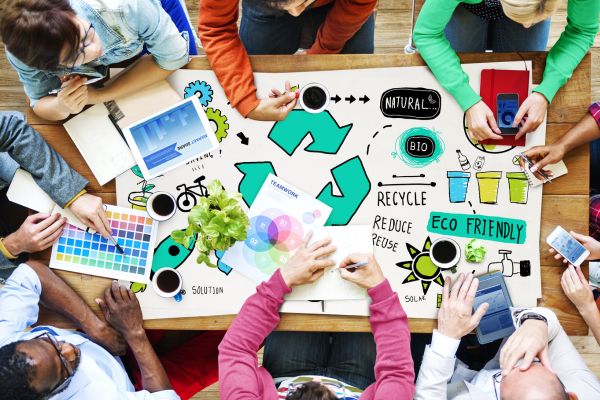- Determine the scope: Identify the areas of your commercial place that you want to audit. This could include the entire building or specific areas, such as the cafeteria or loading dock.
- Gather information: Gather information about current recycling awareness in your office. This could include reviewing the recycling policy and procedures, talking to employees and examining the recycling bins.
- Determine the materials being generated: Identify the types and amounts of materials being generated in your office. This could include e-waste, lamps, other hazardous waste or even paper, plastic, glass, metal, and organic waste.
- Analyze the current recycling practices: Analyze the current recycling practices at the commercial place, including how the materials are collected, sorted, and disposed of. This could include looking at the types of bins being used, how often they are emptied, and how the materials are transported to the recycling facility
- Identify opportunities for improvement: Identify areas where the commercial place could improve its recycling practices. This could include providing additional recycling bins, educating employees on proper recycling practices, or working with recycling professionals at Madenat to improve recycling efficiency.
- Develop an action plan: Develop an action plan to implement the recommended improvements. This could include setting goals, identifying responsible parties, and establishing a timeline for implementation.
- Monitor progress: Monitor progress towards achieving the recycling goals and adjust the action plan as necessary. This could include conducting regular audits to track progress and identify areas for improvement.
By following these steps, you can conduct a thorough recycling audit at your offices or commercial places. A regular recycling audit helps corporates generate required reports to adhere to government policies. Contact Madenat Recycling to simplify your recycling audit and process.



